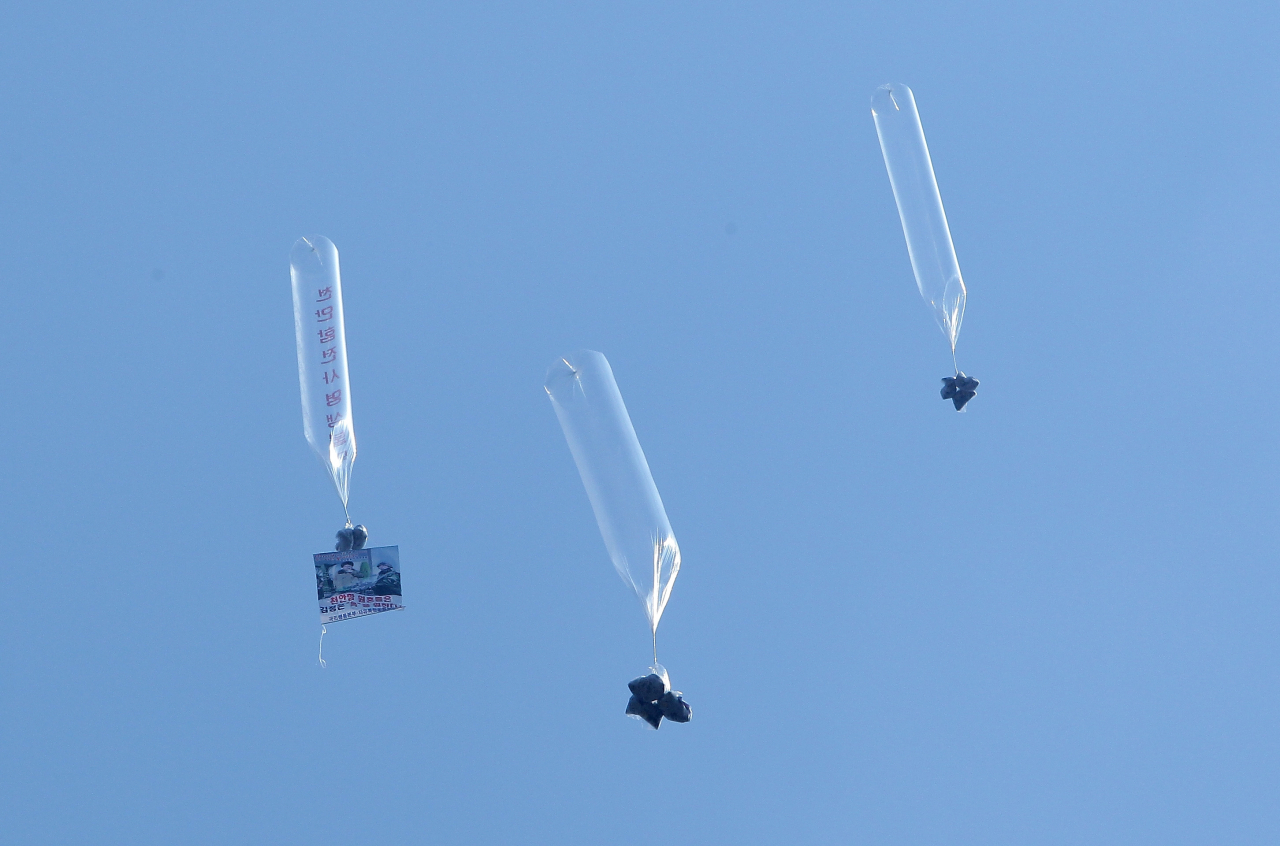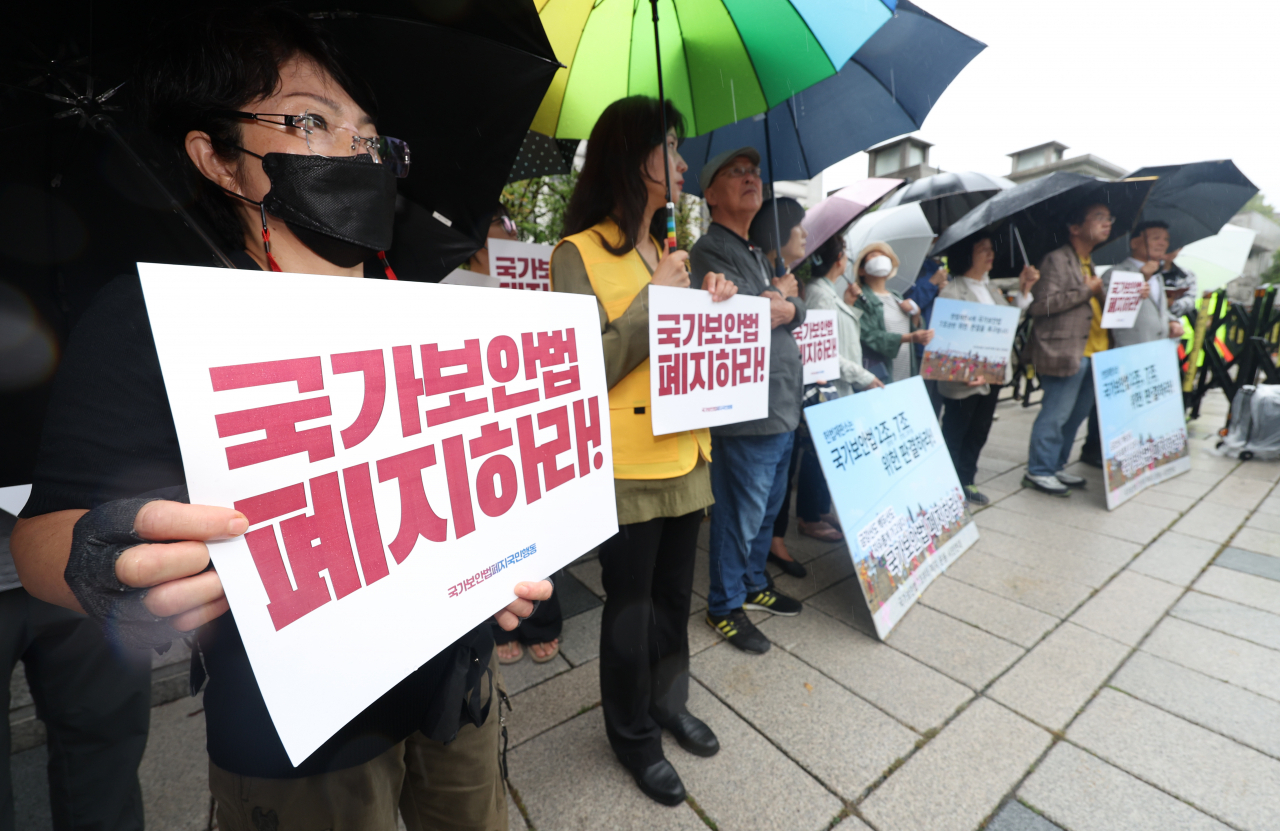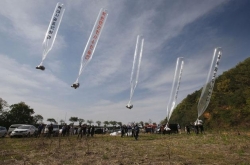 |
Balloons carrying anti-North Korea leaflets are released by North Korean defectors, now living on South Korea, on March 26, 2016 in Paju, South Korea. (GettyImages) |
A South Korean court on Tuesday found a law banning private entities from sending leaflets or other items by balloon into North Korea unconstitutional.
In a 7-2 decision, the Constitutional Court found the Development of Inter-Korean Relations Act, promulgated in 2020 during the liberal Moon Jae-in administration, unconstitutional. Scores of North Korean human rights groups filed the complaint with the Constitutional Court immediately after the law came into effect.
After the conservative President Yoon Suk Yeol succeeded Moon, his administration's unification minister, Kwon Young-se, submitted an opinion to the court, saying the leafletting ban "infringes on freedom of expression" and “violates the principles of proportionality between responsibility and punishment.”
Under the rule, those who violate the so-called "anti-leaflet law" are subject to at most three years of imprisonment or a fine of 30 million won ($22,160) or less.
 |
Members of a civic group hold placards calling for the annulment of the National Security Act to protest the Constitutional Court's ruling on Tuesday in front of the court in Seoul. (Yonhap) |
Meanwhile, the same court on Tuesday found a law to ban the act of praising or propagating the North Korean regime under the National Security Act constitutional. The decision is the latest development in the row over what constitutes as anti-government activities, since the latest revision of the rule in 1991.
Under the current security law, a person who praises, incites or propagates the activities of North Korea or its affiliated organizations, or those who instigate a rebellion against the South Korean government, will be punished for up to seven years in prison. Those making, possessing or distributing documents, drawings or expression materials to praise North Korea are subject to penalties.
The same rule defines North Korea as an "anti-government organization" that fraudulently uses a government title.
Those who founded or joined anti-government organizations intended to praise North Korea could face at least one year of imprisonment.
The suit marks the eighth of its kind. Those who were convicted of the security law violation claimed that specific clauses in the law violates the principle of "no punishment without law," and fails to provide a principle of certainty under which the law must provide a clear framework to regulate people's conduct.
The Human Rights Commission of Korea in 2022 also blasted the same clauses for "breaching the freedom of speech and freedom of conscience with a violation of the principle of certainty and the principle of proportionality" during the court trial.
The Ministry of Justice, however, argued that the government intervention to address what has already become an existential threat due to the anti-government campaign would be rendered useless, so excessive regulation preemptively on such activities are essential.
![[News Focus] Moon's leaflet stance effort to manage NK ties before summit with Biden: experts](http://res.heraldm.com/phpwas/restmb_idxmake.php?idx=605&simg=/content/image/2021/05/11/20210511000750_0.jpg)

![[Herald Interview] Unfazed by warnings, defector vows to continue leaflet campaign](http://res.heraldm.com/phpwas/restmb_idxmake.php?idx=605&simg=/content/image/2020/06/18/20200618000751_0.jpg)







![[Today’s K-pop] Blackpink’s Jennie, Lisa invited to Coachella as solo acts](http://res.heraldm.com/phpwas/restmb_idxmake.php?idx=644&simg=/content/image/2024/11/21/20241121050099_0.jpg)